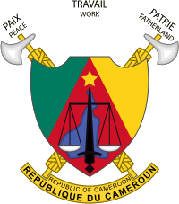Yesterday 21 March 2019, The Minister of Small and Medium-Sized Enterprises, Social Economy and Handicrafts (MINPMEESA) defended the Draft Bill governing Social Economy in Cameroon before the Economic Affairs Commission of the National Assembly,
This text, which was to be adopted by the committee members with regards to the
concerns raised, would help to fill the legal vacuum of the MINPMEESA’s third pillar
which is Social Economy It is made up of twenty-two (22) articles spread out in six (6) chapters. Henceforth, the three major MINPMEESA sectors of intervention shall be given a legal framework. The main objective of this Draft law is to adopt a
Government policy which underlies the positioning and steering of social economy
activities.
MINPMEESA boss, in its presentation, clearly indicated that the adoption and
enactment of this legal instrument would enhance concerted and concentrated
actions, considering the scaling down of the budgetary lines in some administrations
meant for giving material and financial assistance to Social Economy Organisations.
To this effect, there was need for coordination. To be more concrete and practical,
this Draft law shows Government's determination to orientate, organise, monitor and enhance the development of human being within his social group. It is also within a context marked by the ongoing decentralisation process with the devolution of large portions of powers to Regional and Local Authorities that this Bill is being scrutinised.
This legal basis in the management of groups would enhance conformity to
international norms as far as social economy is concerned in keeping with
Recommendation 204 of the International Labour Organisation. This would facilitate easy transition from informal to formal economy. This is one of the major
preoccupations of the Head of State published in his book in 1987 entitled
Communal Liberalism, which posits that Social Economy is the proper organisation
of entities, a major « springboard in enhancing a larger citizens' participation in the production of national wealth and deriving dividends thereof on a fair and solidarity basis ».

